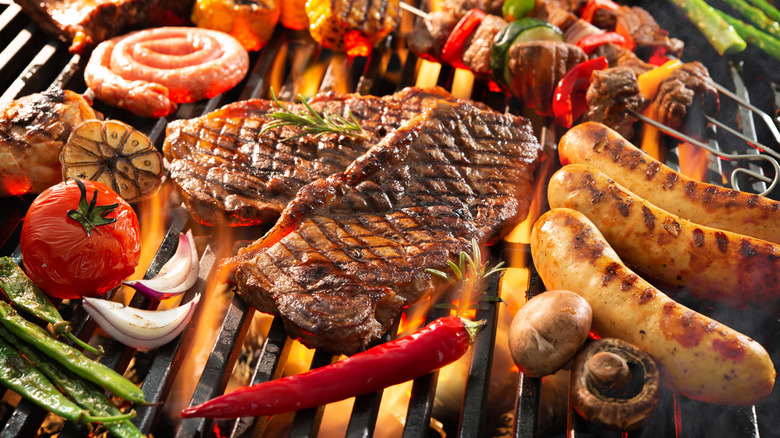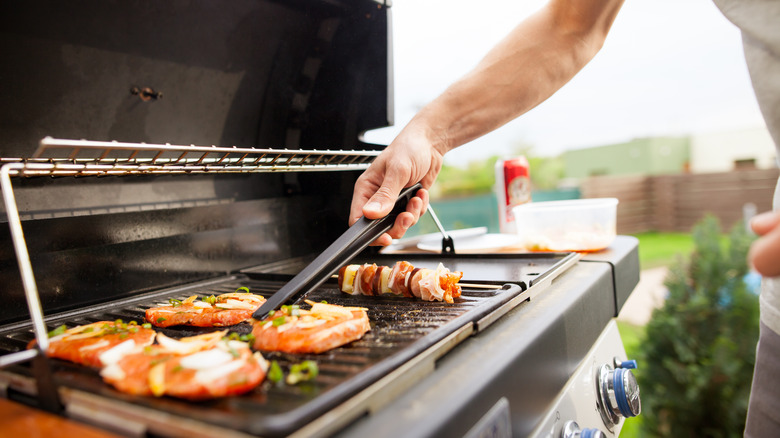The Real Difference Between Gas Grills And Charcoal Grills
The debate between gas grills and charcoal grills has been a long-standing one. There are die-hards on both ends, people who swear by one or the other grill type. In truth, both types of grill have their lists of pros and cons which should be taken into account before purchasing one or the other.
John Cohen, a chef from Brooklyn, says that gas grills are great for "cooking fish, roasting vegetables, or making a fast dinner of sausages and peppers" (via The New York Times). What they are not good for, according to Cohen, is high-heat searing.
Gas grills tend to be more convenient, making them a great option for an easy weeknight dinner or cooking up a big batch of hot dogs after a softball game. Charcoal grills, on the other hand, offer a bit more heat and flavor to whatever you're cooking, though they may require a bit more advance planning.
Gas grills are better for versatility, charcoal grills are better for searing
The largest difference between gas grills and charcoal grills is the type of cooking they're good for, and this is based on how hot they each get. (You should also factor in the smokey flavor that inevitably imbues whatever you're cooking on a charcoal grill.)
A charcoal grill can reach temperatures of up to 700 degrees Fahrenheit, making them ideal for achieving that perfect sear (via Taste of Home). Additionally, the drippings from whatever you're cooking (plus the smoke from the wood you're burning) adds a lot of flavor to your steaks or burgers.
Gas grills, on the other hand, are better for lower, slower grill times. It's easier to control the temperature on a gas grill, so you won't char your chicken, plus it offers you versatility — you can cook a lot more things on it. While a charcoal grill may need 15-20 minutes to heat up to the correct temperature (not including the time it takes to light the charcoal), a gas grill heats up pretty quickly, so you can go from prepping to eating in less time.

